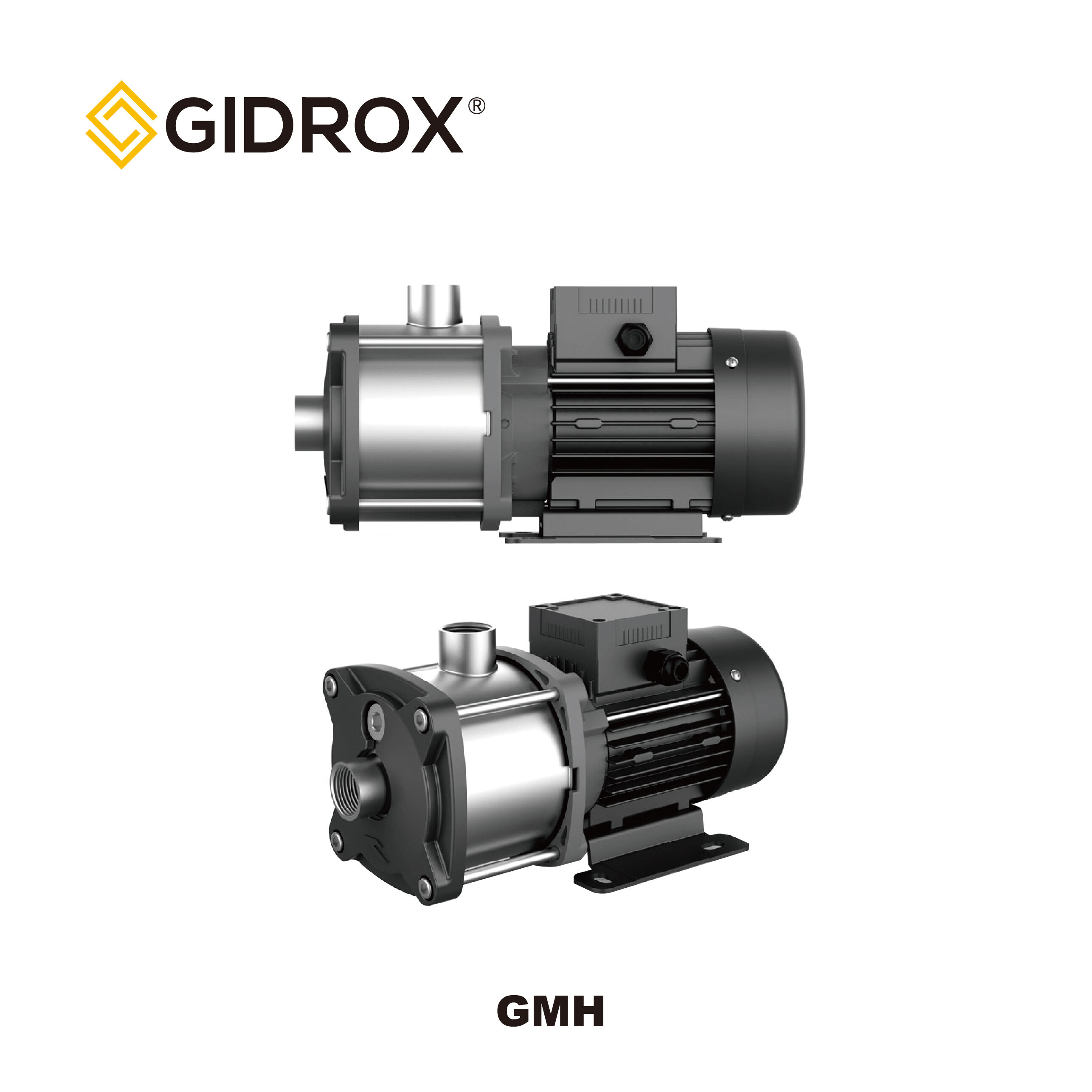Ცენტრისკენ მიმართული ტუმბოები სამრეწველო სითხეების ხშირად აგრესიულ გარემოში მუშაობენ. ნერჩილისგან დამზადებული (SS) ცენტრიფუგული ტუმბოების წარმოების საქმეში არსებობს ერთი პარამეტრი, რომელიც მთავარ ადგილს იკავებს პროდუქტის ხარისხის შესანარჩუნებლად მომხმარებლის მიმართულებით: კოროზიის მიმართ წინაღობა. ეს არ არის სასურველი ხასიათის მაჩვენებელი, ეს არის ზუსტად ის მიზეზი, რის გამოც აირჩიეს ნერჩილი და ასევე განმსაზღვრელი პარამეტრი ტუმბოს მუშაობის, მარაგისა და მისი მუშაობის უსაფრთხოების მიმართულებით. კოროზიის მიმართ წინაღობა აუცილებელია შემდეგი მიზეზების გამო:
Უხილავი მტრის წინააღმდეგ ბრძოლა: აგრესიული სატექნოლოგიო სითხეები
Მრავალფეროვანი ნახევრად გამჭვირვალე სითხეების გამოყენება მრეწველობაში ხდება: წყალი, ქიმიკატები, ხსნილებები, მჟავები, ტუტეები, მარილიანი წყალი და აგრესიული პროცესული ნაკადები. მათ შორის ბევრი ბუნებით კოროზიულია. ქლორიდები, რომლებიც ზღვის წყალში, გასაგრილებელ სითხეებში და უმეტეს ქიმიკატებში გვხვდება, ლითონზე დამახასიათებელ ტიპებს უწოდებენ. პომპა, რომელიც არ არის საკმარისად კოროზიამედეგი, ისევ ისე შეიძლება გაიშლის შიდა (იმპელერები, სანაკრები, ღერძები) და გარე მხრიდანაც. მწარმოებლებისთვის საუკეთესო ხარისხის ნაღდის ფორმით მომწოდებული ნახშირბადიანი ფოლადის (მაგალითად, ზოგადი გამოყენებისთვის განკუთვნილი 304 ან ქლორიდების მიმართ მეტი მდგრადობის მქონე 316/L) და სრულყოფილი პასივაციის პროცესების გამოყენება მნიშვნელოვან საწყის ნაბიჯად ითვლება. დაუწყვეტელი ქიმიური ზემოქმედების წინააღმდეგ წინაღობის გასაძლებად მასალაზე უნდა წარმოიქმნას მდგრადი, თვითშეკეთებადი პასიური ოქსიდის ფენა.
Ინვესტიციის დაცვა და TCO-ის (სრული საკუთრების ხარჯების) მინიმუმამდე შემცირება
Მავნე ნაერთების მარაგის მიმდინარეობა მრეწველობის საშენ მასალებში საშინლად ძვირი აღმოჩნდება. გულაშის მავნეობის მიზეზები კი შემდეგში მდგომარეობს:
Გაუთვალისწინებელი შეჩერება: პროდუქტის გაჩერება სასწრაფო შეკეთების ან შეცვლის მიზნით.
Მაღალი შეცვლის ხარჯები: გულაშის ნაწილების ან მთლიანად გულაშის შეცვლა ხშირად ძვირი აღმოჩნდება.
Ხელის შრომა და მომსახურება: ბევრი ინვესტიცია ხორციელდება შეკეთებასა და პროფილაქტიკურ სამუშაოებში.
Როდესაც მწარმოებლები გულაშის მავნეობის მიმართ მდგრადობას მთავარ დიზაინში აყენებენ და უფრო მაღალხარისხიან მასალებს ირჩევენ, ასეთი პროდუქტის მავნეობის მიმართ მდგრადობა პირდაპირ მომხმარებლის ხარჯების შემცირებაში გადადის. გულაშის მავნეობის მიმართ მდგრადი ხარისხი ნათელია, რომ გულაში უფრო მეტი იარსებებს, ნაკლები მომსახურება საჭიროებს და მნიშვნულად ამცირებს სრული გაუმართაობის რისკს, რაც ბოლო მომხმარებლისთვის საერთო სარგებლობის ხარჯების მნიშვნულად შემცირებას ნიშნავს.
Პროდუქტის სუფთაობისა და უსაფრთხოების უზრუნველყოფა
Სითხის სიწმინდე მნიშვნელოვან როლს თამაშობს მაღალი სიწმინდის ინდუსტრიებში, როგორიცაა საკვების და სასმელის წარმოება, ფარმაცევტიკა, ბიოტექნოლოგია და ნახევარგამტარების წარმოება. ასეთ შემთხვევაში კოროზიის ნაწილაკების ნაკადში მოხვედრის გამო მოხდება პროდუქტის დაბინძურება, რაც უარყოფითად აისახება პროდუქტის ხარისხზე, უსაფრთხოებაზე და ნორმატიულ მოთხოვნებზე (მაგალითად, FDA, EHEDG, 3A). დაბინძურების ასეთი რისკი, რომელიც უფრო მეტად ამაღლებულია სიმაგრის მაღალი სიწმინდის აირჩევისა და ნაჭრის ზედაპირის გლუვი დამუშავების გამოყენებით, შეიძლება თავიდან იქნას აცილებული, რაც მნიშვნელოვანია მომხმარებლისთვის და პროდუქტისთვის ასეთ ბაზარზე, რომელიც მიმწოდებლებისთვის პრიორიტეტულ მიზნებს წარმოადგენს.
Მუშაობისა და ეფექტურობის შენარჩუნება
Არა მარტო დანაგვის გამო ხდება დაშვება, არამედ მნიშვნელოვან ჰიდრავლიკურ ზედაპირებზე ზედაპირის დახრჩობა ხდება. ბურღუნქულის დანაგვის ან სპირალური სანაკრების გახრჩობის გამო იკარგება ზუსტი ჰიდრავლიკური პროფილის ინჟინერია. ეს პირდაპირ გვატარებს:
Დაბლა დაშვებული დიაპაზონი და წნევა: საშენ მანქანა ვერ იმუშავებს მისი დიზაინის შესაბამისად.
Ეფექტურობის შემცირება: ენერგია ხარჯვის საშუალებას იძლევა საშენ მანქანას უფრო ნაკლები სიმძლავრის მიცემაზე, ვიდრე არის ჰიდრავლიკური დანაკარგის შემოწმებისას ზედაპირის დეგრადაციის გამო.
Კავიტაციის რისკი: კავიტაცია შეიძლება მოხდეს ზედაპირის დასუსტების გამო, რიპლების ან არეულობის მიერ გამოწვეული დაზიანების კავიტაციის გამძაფრების შესაძლო მიზეზით. იმისათვის, რომ შეინარჩუნონ ეფექტური და სტანდარტული საშენი მანქანის მუშაობა, მწარმოებლებმა უნდა უზრუნველყონ კოროზიის მიმართ მდგრადობა მოწოდებული საშენი მანქანის მნიშვნელოვან ზედაპირებზე მისი გამოყენების განმავლობაში.
Გარე მდგრადობა რთულ გარემოში
Კოროზიის საფრთხე არ შემოიფარგლება მხოლოდ სითხით, რომელიც გადახურდება. პუმპების გამოყენება ხდება მძიმე პირობებში, სადაც ხშირად ხდება მათი დაბანა, მარილიან სანაპიროებში, დაბინძურებულ ან ტენიან ადგილებში. გარეგანი კოროზია ამცირებს სტრუქტურული ელემენტების სიმტკიცეს, იწვევს ზედაპირის დაზიანებას და შეიძლება გამოწვიოს სანთელის დაზიანება ან ელექტრო გაუმართლება. საჭიროა მაღალხარისხიანი ნაღდის ფორმების გამოყენება, ასევე მაღალი ხარისხის გარეგანი დაცვა (კარგი პასივაცია, მაღალხარისხიანი საბოლოო დამუშავება), რათა უზრუნველყოთ პუმპების ხანგრძლივობა და საიმედოობა სამუშაო პირობებში.
Დასკვნა: არასათანადო საფუძველი
Კოროზიის მიმართ წინადადებულობა მეტია, ვიდრე უბრალოდ ჩამონათვალში ერთ-ერთი ნიშანი ნაღმის ცენტრიფუგული პომპების მწარმოებლებისთვის; ეს არის იმის საფუძველი, რაზედაც დამოკიდებულია მათი პროდუქტების საიმედოობა, კლიენტების კმაყოფილება და შესაბამისად მათი შეძენის ხანგრძლივობა. ეს განსაზღვრავს მასალის არჩევანს, კონსტრუქციის გადაწყვეტილებებს (ნაღვლების გამორიცხვა, უზრუნველყოფს სუფთა ზედაპირებს) და კონტროლის მიღებას წარმოების პროცესებში (ზუსტი დამუშავება/ჭედვა, კვალიფიციური შედუღება, მაღალი ხარისხის პასივაცია). წარმატებულ მწარმოებლებს გამორჩევა მათი მნიშვნელოვანი ინვესტიციები კოროზიის სფეროში ცოდნის განვითარებაში და მისი მკაცრად გამოყენებაში. კოროზიის მიმართ გამორჩეული წინადადებულობით დაპროექტებული პომპების მიწოდებით, მწარმოებლები მიაწოდებენ თავიანთ კლიენტებს სამრეწველო ბაზარზე იმ საშუალებებს, რომლების გარეშე ვერ შეიძლება: საიმედოობა, რომელიც ამცირებს პროდუქტიული დროის დაკარგვას, სისუფთავე, რომელიც იცავს პროდუქტებს, ეფექტიანობა, რომელიც ამცირებს ხარჯებს, და მდგრადობა, რომელიც უზრუნველყოფს შესანიშნავ ინვესტიციას ყველაზე მნიშვნელოვან სითხის მართვის ამოცანებში. კოროზიის მიმართ წინადადებულობა ნაღმის ცენტრიფუგული პომპების სამყაროში არ არის მხოლოდ მნიშვნელოვანი თვისება, არამედ საყრდენი ძირი.

 EN
EN










































 ONLINE
ONLINE